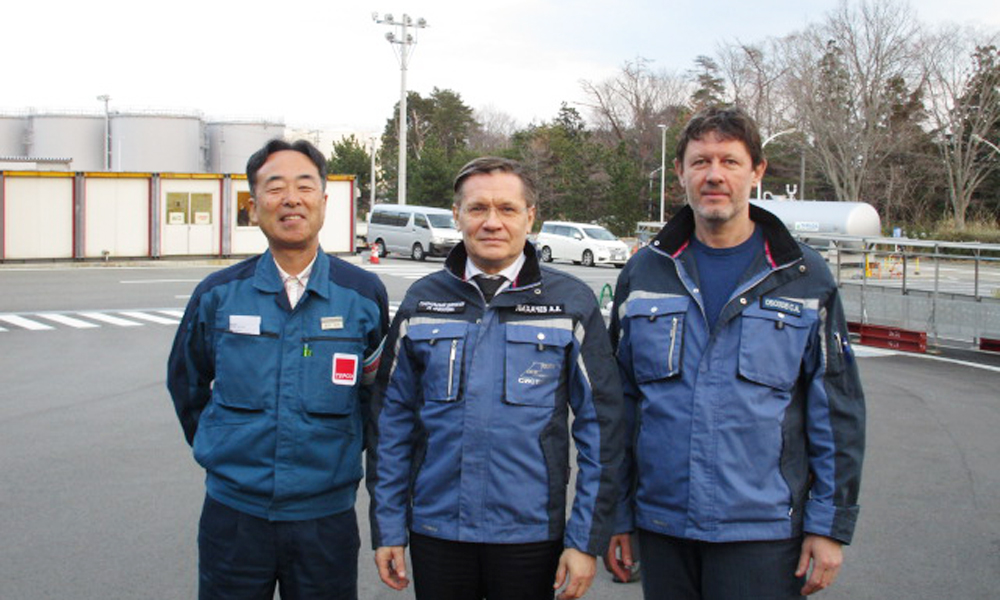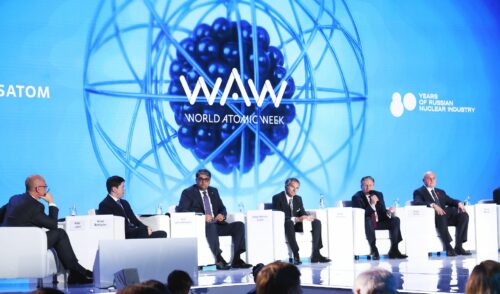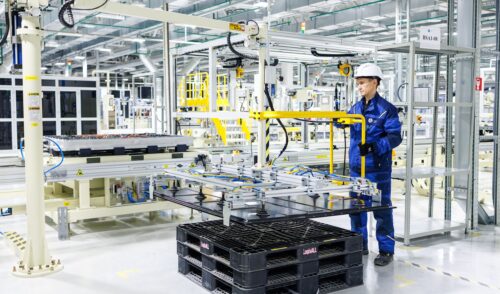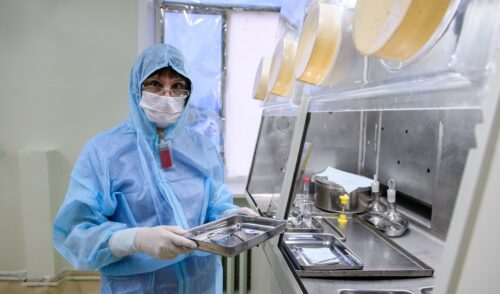
Russia-Japan Partnership Gathers Momentum
back to contentsIn early April, Rosatom CEO Alexei Likhachov visited Japan to have talks with Hiroshige Seko, Japan’s Minister of Economy, Trade and Industry, and Hirokazu Matsuno, Minister of Education, Culture, Sports, Science and Technology. The talks were a logical continuation of the memorandum on civil nuclear cooperation signed last December and focused on the possibility of using Russian radioactive waste disposal and nuclear decommissioning solutions.
“We had negotiations with the Minister of Economy, Trade, and Industry and the Minister of Education, Culture, Sports, Science and Technology, and visited the Fukushima nuclear plant. Each of these talks was productive and brought certain results. They are either a new agreement or a commitment to signing new documents or practical implementation of earlier agreements,” Alexei Likhachov said in an interview to Russian media.
Visit to Fukushima 1
The Russian delegation inspected the site of Fukushima 1 to see the progress of cleanup operations. “Our Japanese partners are making noticeable headway in their recovery efforts. Russia has offered technologies that are both feasible and cost efficient,” Mr. Likhachov noted. According to him, cleanup operations are the best example of how the two countries work together in the nuclear area. “Solutions we offer are both effective and efficient and can save a part of those tens of billions of US dollars to be spent on disaster cleanup. The first project is already on its way as we won a contract for the development of a neutron detector to be used for radiological assessment of the reactor core. I believe that this project will be a small breakthrough that will open doors for more contracts,” Alexei Likhachov said. Rosatom has repeatedly voiced its readiness to help Japan recover from the effects of the Fukushima accident.
In the autumn of 2014, the Japanese government selected Rosatom’s subsidiaries RosRAO and Khlopin Radium Institute as partners for the pilot project to test a new technology for removing tritium from liquid radioactive waste accumulated after the accident at Fukushima 1, where tritium content is hundred times higher than the maximum permitted level. Technologies in current use at the station are capable of cleaning the waste from cesium and strontium isotopes, but not from tritium. Russian nuclear engineers created a pilot cleanup plant that was successfully tested earlier this year at one of RosRAO’s test sites. In late 2015, German-based Nukem Technologies (controlled by Rosatom’s subsidiary AtomStroyExport) and Japan’s Mitsubishi Heavy Industries concluded a contract to carry out four feasibility studies for the recovery projects to be run at Fukushima.
Projects in third countries
“Our civil nuclear cooperation surely goes far beyond the power industry. Japan puts in much effort in the development of nuclear medicine and nuclear technologies for agriculture. My hope is that our colleagues will also be interested in these areas of cooperation,” Rosatom CEO said in the interview. According to Alexei Likhachov, Rosatom and its partners in Japan are already discussing the possibility of joint projects in third countries. “No less important is that we can join our competencies with Japanese nuclear companies well known both in and outside the country. We might reach an agreement to deliver joint projects in third countries,” he noted.
FOR REFERENCE
The memorandum on cooperation with Japan was signed on 16 December by Rosatom CEO Alexei Likhachov, Japan’s Minister of Economy, Trade, and Industry Hiroshige Seko and Minister of Education, Culture, Sports, Science and Technology Hirokazu Matsuno in the presence of Russia’s President Vladimir Putin and Japanese Prime Minister Shinzo Abe. Key areas of cooperation set out in the Memorandum are post-accident recovery at the Fukushima Daiichi Nuclear Power Plant, radioactive waste management, possible decommissioning, and prospects of creating a single environment for the exchange of expertise and knowledge between Russia and Japan to promote innovative nuclear technologies.




